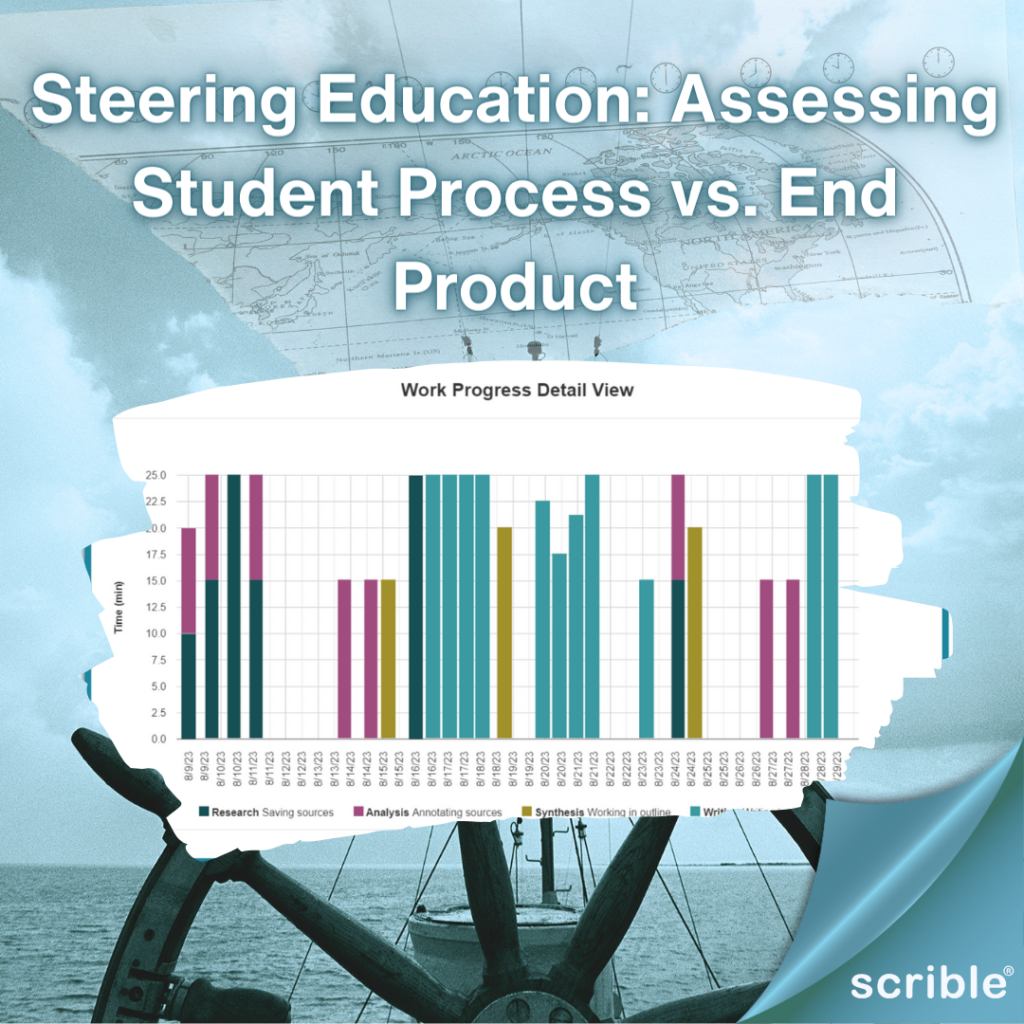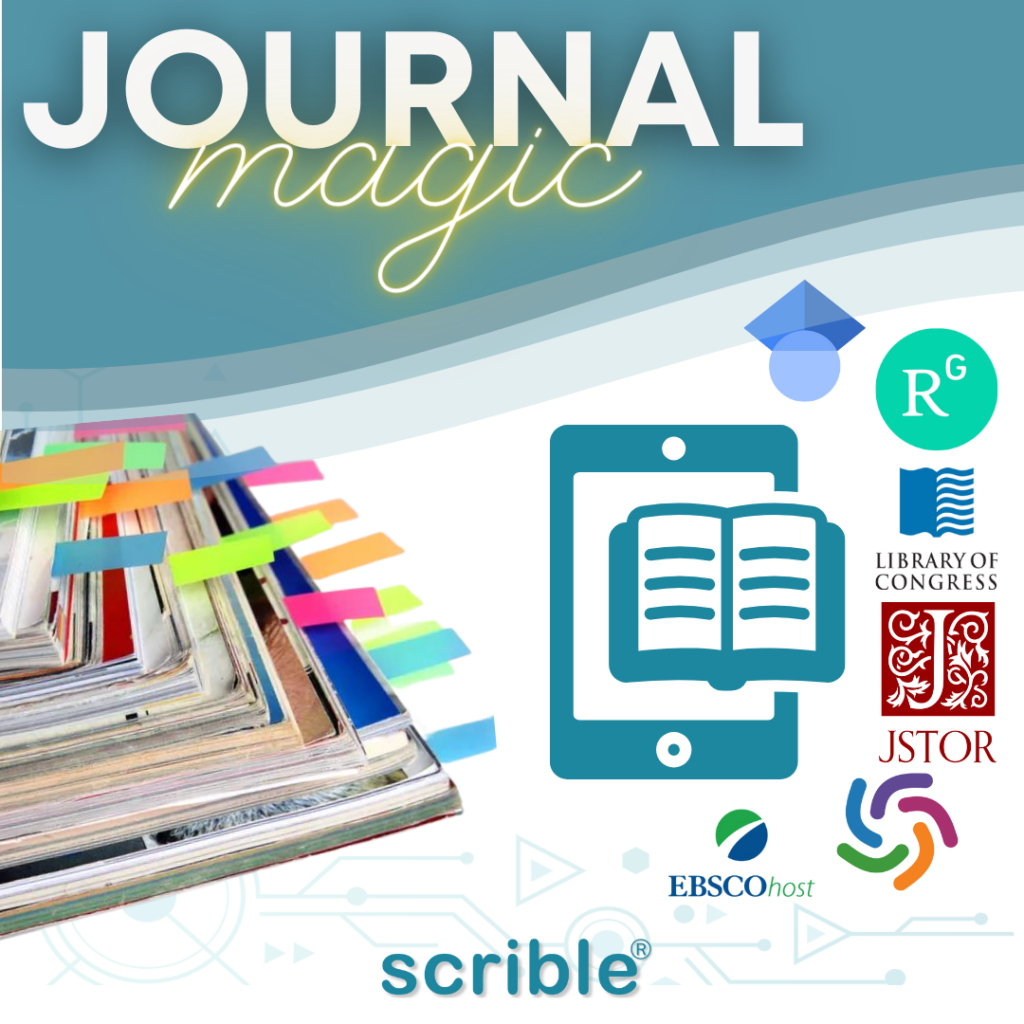
Each course in a student’s journey is essential in steering their educational success. Scrible’s Progress Monitoring tool is the compass that guides educators, enabling them to navigate through a student’s learning journey. It’s a pedagogical innovation designed for transparent, formative assessments and real-time data to chart customized learning paths.
Empowering Educators with Actionable Insights
As educators, we chart the academic progress of our students with a watchful eye on four critical stages: research, analysis, synthesis, and writing – the core pillars of Scrible’s Progress Monitoring. By capturing the time students invest in curating and annotating sources, Scrible empowers educators to guide the research journey, ensuring students dive deep into their subjects (Gustafsson-Wright et al., 20211; Chiaro, 20202). This scaffolded approach mirrors math’s “show your work” philosophy, translating it into the writing process fostering an environment where progress is visible, measurable, and meaningful.
Steering Students Towards Self-Regulation and Success
The tool’s real-time tracking features equip educators to nurture an analytical mindset during the source annotation phase and to observe the synthesis of information as it unfolds into structured outlines. Scrible’s close monitoring of writing time further allows educators to gauge student effort and understanding, enabling a tailored and responsive teaching strategy.
Ensuring Academic Integrity
In a world where academic integrity is paramount, Scrible’s features support preventing plagiarism. It does this not by policing students but by partnering with them in their academic development, highlighting their work journey from conception to completion (McCabe et al., 20013).
Scrible’s Role in Future Learning
As we look to the horizon, Scrible’s Progress Monitoring is the compass, promising navigation through the vast educational challenges we face in an ever-changing technological world. It’s more than a tool; it’s a mindset, a commitment to excellence, and a pact between teachers and students, assuring that every step is toward more significant learning, understanding, and integrity.
Your insights fuel our journey, shaping the features and support we provide. We’d like to invite you to try out Progress Monitoring (and the many other features we offer!) Share your stories, the triumphs, and learning. Together, let’s shape the future of education.
Thanks for embracing the journey with Scrible.
References:
- Gustafsson-Wright, Emily, et al. “How Can Real-Time Performance Data Lead to Better Education Outcomes? | Brookings.” Brookings, Brookings, 6 May 2021, https://www.brookings.edu/articles/how-can-real-time-performance-data-lead-to-better-education-outcomes/. ↩︎
- Chiaro, Chelsea. “What Is Progress Monitoring and How to Use It Effectively – .” TeachHUB, www.teachhub.com/classroom-management/2020/07/what-is-progress-monitoring-and-how-to-use-it-effectively/. ↩︎
- McCabe, Donald L., Linda Klebe Treviño, and Kenneth D. Butterfield. “Cheating in Academic Institutions: A Decade of Research.” Ethics & Behavior, vol. 11, no. 3, 2001, pp. 219-232. ↩︎








